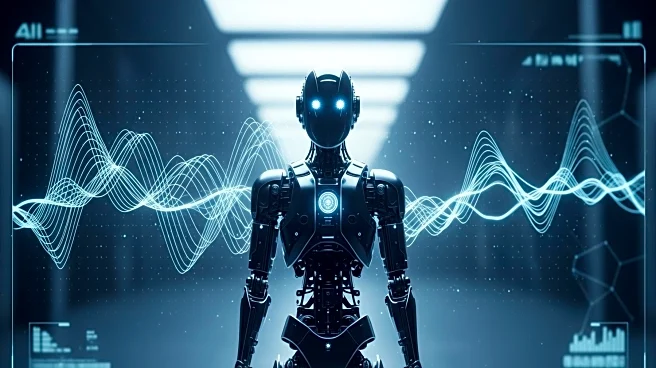What's Happening?
Anthropic has agreed to a $1.5 billion settlement to resolve a lawsuit brought by a group of authors who accused the AI company of illegally using their copyrighted books to train its AI model, Claude. The settlement was announced on August 29, following a motion filed with the 9th US Circuit Court of Appeals. This agreement marks a significant development in the legal landscape surrounding AI and copyright, as it sets a precedent for compensating copyright owners. The settlement still requires court approval, which is expected to occur at a hearing on September 8. Authors involved in the class action could receive approximately $3,000 per pirated work, with the case potentially involving at least 500,000 works.
Why It's Important?
The settlement is a landmark in the ongoing debate over copyright law in the AI era. It underscores the tension between creators and AI developers, who often seek fair use exceptions to utilize large datasets for training models without licensing. This case could influence future negotiations and settlements in similar disputes, as it provides a benchmark for compensation. The outcome highlights the need for clearer legislation on how AI companies can develop and train their models, as court cases like this one are shaping the future of AI products. The resolution of this lawsuit allows Anthropic to continue its operations without the uncertainty of a trial, while authors receive compensation for their works.
What's Next?
The court's approval of the settlement is anticipated, which would finalize the agreement and provide compensation to the authors. However, the broader legal questions surrounding AI and copyright remain unresolved, potentially leading to further litigation involving different parties. The settlement may serve as a reference point for future cases, but each will need to be evaluated on its own merits. The ongoing development of legal precedents will continue to influence how copyright law is applied in the context of AI.
Beyond the Headlines
This case highlights the ethical and legal challenges posed by AI development, particularly regarding the use of copyrighted materials. The settlement does not address the underlying legal dilemmas, leaving room for future disputes. As AI technology advances, the need for clear guidelines and regulations becomes increasingly important to balance innovation with the rights of content creators.









